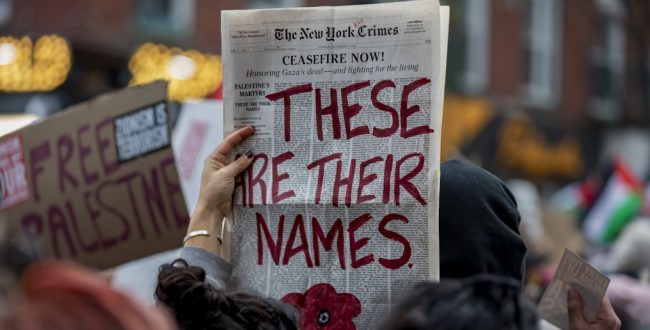Although party platforms are best viewed as criteria for measuring whether politicians live up to their campaign promises, they are also the most carefully formulated representation of a party’s worldview. In the lead-up to Israel’s March 2015 general elections, local media seriously analyzed the contending parties’ positions on socioeconomic issues, religion and state, and democratic values. This article will add a comparison of their positions on foreign affairs and security issues, yielding some interesting results.
The comparison will focus on the parties’ positions on current diplomatic and security concerns, both vis-à-vis the Palestinians and regarding the Middle East in general. Given the major upheavals in Israeli-Palestinian relations and in regional ties in recent years, it is safe to assume that most of the Israeli electorate prefers to keep things as they are rather than go out on a limb with new political agreements. Parties that have not adapted their platforms accordingly are either ignoring these expectations or counting on voter apathy. These parties essentially offer voters more of the same, while parties that have adapted to the new reality at least offer the Israeli public something fresh.
Bloc leaders
The Likud Party and the Labor Party, the two big rivals for government and for leadership of the political blocs in Israel, are stuck in the mid-1990s when it comes to foreign affairs and security. The Likud did not even bother to publish a platform before the March elections – not so much as a bullet list for the media. The Labor Party, reborn as the Zionist union, responded by inventing a platform for its rival based on the Likud’s last term in government.
While the Zionist union displays slightly more respect for its voters, it offers nothing new on the diplomatic and security front. Despite the drastic changes of recent years – Israel’s “disengagement” from Gaza and its political repercussions, the split between Hamas in Gaza and the Palestinian Authority (PA) in the West Bank, the uprisings in Arab countries – the Zionist union is still touting “renewal of bilateral, regional and international negotiations, with the aim of reaching a permanent-status agreement with the Palestinians based on the principle of two states for two nations.”
The practical aspects of such an agreement, which would be reached “with the support of the moderate Arab countries and the international community”, are only briefly outlined in the party’s platform. Even then, the descriptions contain omissions and internal contradictions. Among other things, the Zionist union proposes to retain the large Israeli settlements blocs in the West Bank, “to strengthen Jerusalem and its status as the eternal capital of the state of Israel, and to ensure freedom of religion and access to the sites holy to all religions, along with maintaining Israeli sovereignty”, strengthening the PA, ensuring “significant deterrence” of Hamas, demilitarizing the Gaza Strip, and “eradicating the terror infrastructure in Judea and Samaria [the West Bank]” in collaboration with the PA, Egypt, and other regional and international actors. The platform also proposes reinforcement of Israel’s strategic and economic ties with Egypt and Jordan – a vacuous statement that could just as well have been made by Eli Yishay’s hawkish ultra-Orthodox (Haredi) party.
The right wing
To the left and right of the two big parties, the picture is more diverse. The ultra-Orthodox parties seem to have no interest in entering the debate over foreign affairs and security: Yahadut Hatorah has no platform, Shas led by Aryeh Deri has only an economic one, and Yahad under Eli Yishay has no official position on foreign affairs issues. Unsurprisingly, the platforms of the two medium-sized right-wing parties – HaBayit HaYehudi and Yisrael Beitenu – present Updated visions that take the regional upheavals into account.
HaBayit Hayehudi “objects to any kind of Palestinian state west of the Jordan River”. At the same time, it rejects the idea of a binational state and opposes annexation of the entire West Bank to Israel. This is based on the assumption that the Palestinian leadership wishes to take over the entire land area of Israel. Acting on the presumption that “peace cannot be reached in our generation”, the party’s leader Bennet proposed a draft entitled “the Stabilization Plan”. The plan would have Israel extend its sovereignty over all of Area C, leaving the Palestinians autonomy in the rest of the West Bank (currently Areas A and B). Israel would retain full security control over the autonomous areas and prevent Palestinian refugees or their descendants from entering them. It would also work to boost the West Bank economy, for the benefit of both Israeli and Palestinian residents. The separation between Gaza and the West Bank would be made permanent, and responsibility for Gaza transferred to Egypt.
Yisrael Beitenu’s foreign affairs and security platform is a personal manifesto, too. “The Lieberman plan”, as it is called, emphasizes the importance of a regional agreement as “the Israeli-Palestinian conflict is not only a territorial conflict with our Palestinian neighbors but a combined, three-dimensional conflict: the Arab countries-Palestinians-Arab Israelis. Therefore, two crucial conditions for any future negotiations are discussing an overall regional arrangement and land and population swaps.” Lieberman’s party demands that the new government “take steps to eradicate the Hamas regime in Gaza” as a strategic goal, and avoid “the mistake of unilateral withdrawals that have reduced Israel’s power of deterrence.” According to Lieberman, “any military act must end with victory, in order to enable a diplomatic move from a position of strength.”
The centrist parties
Israel’s political center currently consists of two medium-sized parties that ran for only the first or second time these last elections. The platforms of both Yesh Atid under Yair Lapid and Kulanu under Moshe Kahlon addressed the diplomatic and security challenges created by the changes in Israeli and regional reality. Yesh Atid calls for “a regional diplomatic agreement with the moderate Arab countries and the Arab League, which will include an agreed resolution of the Palestinian issue.” However, due to the regional turmoil and recent events in Syria, the party objects to negotiating over the Golan Heights, which are “an inseparable part of the state of Israel.” The party’s platform further states that Israel will “make it clear” to the Lebanese government that the latter must disarm Hizballah and that Israel retains the right “to forcefully respond to any instance of missile fire at Israeli citizens.”
The regional agreement envisioned by Yesh Atid includes strict security arrangements and “separation between Israel and the Palestinians based on the principle of ‘two states for two nations’, which will leave the large settlement blocs (Ariel, Gush Etzion and Ma’ale Adumim) within the boundaries of the state of Israel.” During the negotiations, “construction in locations other than the settlement blocs in Judea and Samaria will be frozen, with the exception of development required by the natural growth of existing communities.” Furthermore, “the refugee issue will be resolved within the borders of the future Palestinian state and under no circumstance within Israel.” Jerusalem will remain unified under Israeli sovereignty and “a complete end to all incitement against Israel in the Palestinian education system will be part of any future agreement.” Israel will retain the right to act in the interest of security “even within the boundaries of the future Palestinian state, as needed.”
According to Yesh Atid, “Hamas is a murderous terror organization that does not recognize the existence of the state of Israel, taking action and inciting against it.” As long as Hamas repudiates the principles laid out by the Middle East Quartet, Israel must not cooperate with, or carry out, “direct ongoing dialogue” with the regime in Gaza. The party demands that Israel “increase deterrence” vis-à-vis Hamas and “respond with great force to any firing from the Gaza Strip into the territory of Israel.” However, as the residents of Gaza are not Israel’s enemies, the government should “aspire to ease the closure on Gaza for humanitarian reasons, and even enable development and rehabilitation of Gaza – but only on the condition that Hamas be disarmed and that the crossings be strictly supervised, so that materials and goods entering the Gaza Strip will not be used to arm Hamas and other terror organizations in preparation for another round of violent confrontation with Israel.” The diplomatic mechanism for rehabilitating Gaza “will be discussed and decided within the framework of regional negotiations.” It will be based on “the clear condition that rehabilitation of Gaza depends on disarming Hamas of offensive weapons.”
Kulanu, meanwhile, admits that “the peace negotiations, which have been under way for more than 20 years, have failed to provide a framework for ending the Israeli-Palestinian conflict. The Middle East is currently undergoing geopolitical changes that create regional opportunities, along with new threats. At the same time, in light of the failure to achieve progress in negotiations over a comprehensive agreement, the Palestinian Authority is promoting an alternative plan that includes unilateral initiatives aimed at internationalization of the conflict, isolation of Israel in the world, and promotion of sanctions against – and delegitmization of – Israel.” Therefore, the party supports “a realistic program with defined goals and achievements.” This would require the government to define “for itself, for its citizens, and for its allies, the long-term goals that will enable Israel to remain Jewish and democratic.”
Kulanu offers no definition for these goals. However, its platform does declare that the party will work to revive the agreements reached between former U.S. President Bush and former Israeli Prime Minister Sharon. These include “recognition of the Jewish neighborhoods in East Jerusalem and the settlement blocs as part of the state of Israel in any future agreement”, which would enable construction in these areas, and the understanding that “the Palestinian refugees have no right of return.” Locating the “creativity”, “abandonment of old paradigms”, and “new security doctrine” mentioned in the platform is not an easy task, however. The party’s guidelines for Israeli policy are fairly routine: not to be drawn into Palestinian initiatives; to enforce “security arrangements in Judea and Samaria to defend the citizens of Israel”; to help the PA with “daily, successful management of Palestinian life in the West Bank”; to ensure that Jerusalem remain the capital of Israel; to act “on the international front to maintain the definition of Hamas as a terror organization, and on the regional front to weaken its military and political power”; and to promote an international consensus that views “demilitarization of Gaza under PA security control as a political goal.”
The left wing
Israel’s two genuinely left-wing parties, the Joint Arab List and Meretz, differ markedly on foreign affairs and security. While the latter is interesting for the content of its platform on these issues, the former stands out in its lack thereof. Apart from aspiring to disarm the entire Middle East, including Israel, from weapons of mass destruction, the Joint Arab List makes do with a general statement of support for the two-state solution, which would include dismantling all settlements and the Separation Wall, and for “a just solution to the Palestinian refugee problem, which will ensure the right of return under UN Resolution 194.” On the regional level, the party objects “to imperialist intervention in regional and world affairs, to the policy of ‘divide and rule’, to the ethnic and religious factionalism, and to the division of states and nations.”
Meretz, on the other hand, pays detailed attention to recent developments in the Israeli-Palestinian and regional spheres. According to the party’s platform, “the Israeli/Palestinian conflict can be resolved politically, but only within the framework of two states for two peoples. That requires ending the Israeli occupation of the Palestinian territories, dividing the land under an agreement, and establishing two sovereign states on that land.” However, Meretz does take into account the failed attempts to promote Israeli-Palestinian negotiations with US mediation over the last two decades. As an alternative, it proposes “a new approach that would place an Israeli/Palestinian peace agreement at the heart of a comprehensive regional peace plan based on the Arab League Peace Initiative of 2002, on the condition that all of Israel’s security needs as a Jewish and democratic state are met.” A solution to the refugee problem would be formulated in the spirit of the Arab League Initiative, and a “unified urban space and divided political sovereignty” would be established in Jerusalem. The solutions to Israel’s security needs would respect “the Palestinians’ right to apply sovereignty over all territories” within the Palestinian state.
Meretz sees the Gaza Strip as an inseparable part of the Palestinian state. Accordingly, it holds that Israel must “reunify the West Bank and Gaza as a single entity” and coordinate action with the Palestinians to lift the siege on Gaza. It is in Israel’s interest to rehabilitate Gaza and its economy; therefore, the Israeli government should “facilitate a comprehensive international program to rehabilitate infrastructure, living quarters, and industrial and agricultural areas in Gaza.” Meretz believes that this is the only hope for “stopping the cycles of violence and escalation in the South and restoring security and hope to both Israelis and Gazans.” Regarding the West Bank, Israel must unilaterally declare “immediate, unconditional cessation of the entire settlement enterprise in the West Bank and in East Jerusalem, which contravenes international law,” and formulate a plan for evacuating and compensating the settlers. This would be compounded by “stopping the unilateral exploitation of natural resources beyond the Green Line, which dispossesses the Palestinians.”
Meretz supports broad intervention by the U.S., the European union, and the core members of the Arab League. According to the platform, negotiations would be galvanized “by a broad international convention that will cover all issues pertaining to diplomatic, economic, and security cooperation in the region.” The party calls on the UN Security Council “to recognize Palestine as an independent state and a full member of the General Assembly and of UN international organizations,” so that Israel and Palestine can enter negotiations as equals – each an independent state. The party views this as a sea change that would give Israel its first chance to deal with global anti-Semitic and anti-Israeli trends and would open the doors of the Arab and Muslim world to accepting Israel as a partner.
Discussion and analysis
The foreign affairs and security platforms of the bloc leaders in the current Knesset either completely ignore reality (Likud) or offer voters a collection of slogans that may, at a pinch, have been relevant in the mid-1990s (Labor/Zionist union). It is particularly disappointing to see the self-proclaimed leader of Israeli’s center and left wing ignoring the recent revolutions in the Middle East and rehashing the anachronistic principles of the two-state solution without accommodating the dramatic developments on the Israeli-Palestinian scene in the last twenty years.
The term “regional agreement” appears in the platforms of the Labor Party and of the right-wing and centrist parties that acknowledge the new Middle East reality. This catchphrase masks disenchantment – in itself not very convincing – with the idea of direct, effective negotiations with the Palestinians. Not one of these parties elaborates the meaning of this term or of the statement that “moderate Arab countries” are willing to play an active role in resolving the Israeli-Palestinian conflict. Similarly, they do not detail the price that these countries will exact from Israel in return for pressuring the Palestinians. Apparently, “regional agreement” is the new buzzword instead of “the two-state solution.” However, this term will remain empty until Israel’s red and green lines are made clear. It can only mean something if the parties explain their solution to the current negotiation deadlock, which has been publicly discussed to death in Israel.
While the centrist parties show more respect for the intelligence of their voters than the Labor Party on these issues, their campaign efforts to distance themselves from “the Left” have engendered statements that undermine the very idea of the two-state solution. This is evident in the platform sections relating to Jerusalem, to land swaps, and to refugees, as well as in the omission of any reference to the connection between Gaza and the West Bank, to relations between Hamas and the PA, and to the political power of Hamas. Some of the platforms display a patronizing attitude to neighbors both near and far, casting even more doubt on the “regional agreement” they allegedly support.
The platforms of the medium-sized parties to the right of the Likud also acknowledge the new reality. Their solution is either to utterly ignore the Palestinian problem, relying on the vapid notion of “a regional solution” involving land and population swaps, or to reject the two-state solution altogether and offer the Palestinians a limited autonomy in the West Bank. Jewish settlers would remain within the autonomous areas, and Israel would retain demographic and security control there. Notably, in the 2013 elections, HaBayit HaYehudi chair Bennett hinted – without committing to the idea in writing – that his plan relies on Jordan as the national home of the Palestinians. However, not only will Bennett’s plan be rejected by both the Palestinians and by the international community, it will also set Israel on a collision course with Jordan – the country’s most trusted strategic ally in the region at present. While Bennett may not lose sleep over the risk of a colossal rift between Israel and its immediate neighbors, not to mention its more distant allies, that is the real implication of his plan.
Among the left-wing parties, the Joint Arab List offers the most disappointing platform on diplomatic and security issues. Despite its potential role as a major actor in a brave new Jewish-Palestinian partnership, the party has thus far merely regurgitated the two-state solution, adding unrealistic demands such as the return of all Palestinian refugees. Meretz stands out as the only party in the entire Knesset whose platform both acknowledges the complexity of the Middle East today and offers new ideas – in the Palestinian context in general, and specifically regarding Gaza. These ideas place responsibility on Israel, with the aim of creating a two-state reality and ending the binational reality in which Israelis and Palestinians have lived for decades. Meretz sees this as the key to Israel and the Palestinians realizing the two-state solution from an equal footing, for the first time in the history of the peace process.
The two large parties, Likud and Labor, offer the public nothing other than a handful of 1990s slogans and more of the same. In contrast, parties on the center and right wing, and particularly Meretz, recognize that the public is justifiably concerned over the new security challenges that Israel is facing. The parties address this concern according to their respective worldviews. If the center-left camp in Israel wishes to pose an alternative to the right-wing government, it must propose proactive plans to end the occupation and achieve peace. It is time to leave the hackneyed slogans behind. Talk of “regional agreement” will be of little use unless those who suggest this idea explain what it means and how it can meet Israeli, Palestinian, and Arab interests.
Translator: Michelle Bubis


















